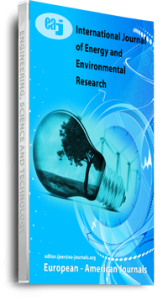Accelerated land degradation has become the major threat to rural livelihoods in the country in general and to the study in particular. The main objective of this study was to assess the perceptions of farmers’ towards the effects of land degradation risks on agricultural productivity decline associated with soil erosion and fertility loss. The study followed a multistage sampling procedure to select sample respondent households. The primary data were collected by using Semi-Structured Interview Schedule key informant interview, FGDs and field observation. Descriptive statistics and econometric methods were used for data analysis. Descriptive results show that of the total sampled households, 57% was perceived the severity and its effect on agricultural land productivity. The result of the study reveals that majority of the farmers perceived and aware of as land degradation is already happening, its causes, indicators and consequences in general. The following indicators of soil erosion and fertility loss were generally perceived and observed by farmers’ in the study area: gullies formations, soil accumulation around clumps of vegetation, soil deposits on gentle slopes, exposed roots, muddy water, sedimentation in streams and rivers, change in vegetation species, increased runoff, and reduced rooting depth. The direct human activities which were perceived to be causing land degradation in the study area include; deforestation, clearing of vegetation, overgrazing, steep slope cultivation, continuous cropping and improper fertilizer uses. Farmers perceived effects of land degradation experienced in the study area includes decline in crop yields, reduced responses to inputs, reduced productivity of irrigated land, lower and less reliable food supplies and increased labour requirements. The regression model was employed to identify the determinants of farmers’ perception of the severity and its effects on land productivity. Their possibility of perceiving its effect on agricultural land productivity from slight to severe was primarily determined by institutional and demographic factors as well as weakly by biophysical factors. Farmers who perceive their land as fast deteriorating and producing less than desired, tend to adopt good land management practices. On the other hand, farmers who perceive their soils to be fertile tend to have low adoption of conservation practices. In order to overcome this land degradation and its consequent effects, the study recommended a need for the government to enforce effective policies to control and prevent land degradation and these policies should be community inclusive /participatory founded up on indigenous and age-honored knowledge and tradition of agricultural land management practices. The study also recommended a significant investment to be made by the government through promotion of land use systems that provide permanent vegetative cover to protect the soil, increase fertility and optimize water penetration.
Keywords: Agricultural Productivity, Effects of Land Degradation, Farmers’ Perception, Land Degradation

